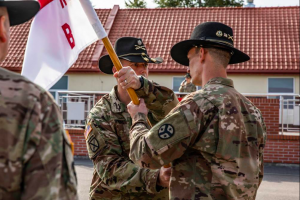 In many marriages, one spouse will be the primary breadwinner. If a couple is happily married, a significant disparity in income is often not a cause for concern, but if the couple decides to divorce, the lesser earning spouse is at a financial disadvantage and may wonder if he or she can afford the cost of an attorney. The law aims to protect the rights of all individuals, even individuals that cannot afford an attorney. Thus, in many divorce cases, the court will order one spouse to pay the other spouse’s legal fees. If you intend to end your marriage, it is in your best interest to consult a skillful Tennessee divorce attorney to discuss whether your spouse may be responsible for your legal fees.
In many marriages, one spouse will be the primary breadwinner. If a couple is happily married, a significant disparity in income is often not a cause for concern, but if the couple decides to divorce, the lesser earning spouse is at a financial disadvantage and may wonder if he or she can afford the cost of an attorney. The law aims to protect the rights of all individuals, even individuals that cannot afford an attorney. Thus, in many divorce cases, the court will order one spouse to pay the other spouse’s legal fees. If you intend to end your marriage, it is in your best interest to consult a skillful Tennessee divorce attorney to discuss whether your spouse may be responsible for your legal fees.
Responsibility for Legal Fees
Like many states, Tennessee follows the “American Rule,” which traditionally requires a party to a lawsuit to pay his or her own attorney’s fees unless a statutory or contractual provision states otherwise. State v. Brown & Williamson Tobacco Corp., 18 S.W.3d 186, 194 (Tenn. 2000). Nevertheless, Tennessee statutory law vests trial courts with the discretion to award one party his or her attorney’s fees in the context of a divorce proceeding, and some trial judges may deem such an award to be a form of alimony. See Tenn. Code Ann. § 36-5-103(c).
 Cole Law Group Blog
Cole Law Group Blog
















 The marriage is over but the divorce lingers on. Perhaps you are one who has now reached a high level of frustration because you still can’t get on with your life, because you and your ex-spouse are deadlocked on every issue, and because your divorce is dragging along at a snail’s pace. Actually, your consternation may be justified. The prolongation of divorce proceedings is both financially ruinous and emotionally devastating. And you shouldn’t have to endure it forever.
The marriage is over but the divorce lingers on. Perhaps you are one who has now reached a high level of frustration because you still can’t get on with your life, because you and your ex-spouse are deadlocked on every issue, and because your divorce is dragging along at a snail’s pace. Actually, your consternation may be justified. The prolongation of divorce proceedings is both financially ruinous and emotionally devastating. And you shouldn’t have to endure it forever. 
 The Tennessee Small Estates Act is found in Tennessee Code Annotated § 30-4-101 et seq. Under this statute, “small estate” is defined to mean an estate in which the value of the property does not exceed $50,000. Additionally, as defined in the statute, “property” is limited to personal property owned by the decedent on the date of death, other than personal property held as tenants by the entirety or jointly with the right of survivorship and/or personal property payable to a beneficiary other than the decedent’s estate (e.g. life insurance payable to a designated beneficiary and/or payable on death bank accounts). Please be advised that real property (e.g. a decedent’s residence or other real estate) is not included in the statute’s definition of “property.”
The Tennessee Small Estates Act is found in Tennessee Code Annotated § 30-4-101 et seq. Under this statute, “small estate” is defined to mean an estate in which the value of the property does not exceed $50,000. Additionally, as defined in the statute, “property” is limited to personal property owned by the decedent on the date of death, other than personal property held as tenants by the entirety or jointly with the right of survivorship and/or personal property payable to a beneficiary other than the decedent’s estate (e.g. life insurance payable to a designated beneficiary and/or payable on death bank accounts). Please be advised that real property (e.g. a decedent’s residence or other real estate) is not included in the statute’s definition of “property.” 
 This article addresses why you should draft a Last Will and Testament, the legal requirements for a valid will under Tennessee law, and different provisions to consider when drafting a will. It is commonly said that only two things are certain in life. One of those things is taxes, and you probably already know what the other one is.
This article addresses why you should draft a Last Will and Testament, the legal requirements for a valid will under Tennessee law, and different provisions to consider when drafting a will. It is commonly said that only two things are certain in life. One of those things is taxes, and you probably already know what the other one is.
 There are arguably no situations more pressing or serious than those involving the custody of your children. In the context of divorce, determining child custody is often the most contentious aspect of the entire lawsuit, and despite issues of property division and alimony often becoming hotly contested issues in their own right, both parents often find themselves fighting with their greatest vigor to protect their right to control the upbringing and development of their children after the bonds of legal matrimony are finally dissolved. If the parents never married, disputes over child custody can become the sole contested issue in a legal dispute. Under Tennessee law, child custody can become an issue in a myriad of different family law proceedings.
There are arguably no situations more pressing or serious than those involving the custody of your children. In the context of divorce, determining child custody is often the most contentious aspect of the entire lawsuit, and despite issues of property division and alimony often becoming hotly contested issues in their own right, both parents often find themselves fighting with their greatest vigor to protect their right to control the upbringing and development of their children after the bonds of legal matrimony are finally dissolved. If the parents never married, disputes over child custody can become the sole contested issue in a legal dispute. Under Tennessee law, child custody can become an issue in a myriad of different family law proceedings. When my daughter was very young, she went through a phase where she would create “clubs” that she would then ask friends and family members to join. These clubs were usually fan related, e.g. the “Hannah Montana Fan Club”, or cause related, e.g. the “Save the Sea Lions Club.”
When my daughter was very young, she went through a phase where she would create “clubs” that she would then ask friends and family members to join. These clubs were usually fan related, e.g. the “Hannah Montana Fan Club”, or cause related, e.g. the “Save the Sea Lions Club.”